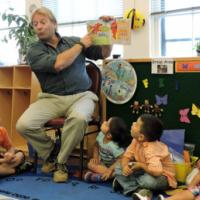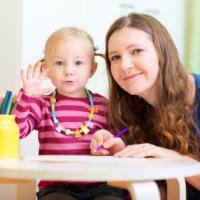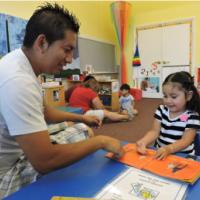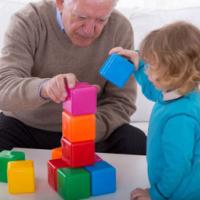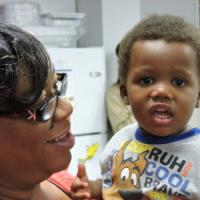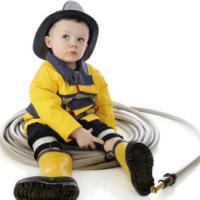When reading a bedtime story to a young child, have you ever wondered what she’s thinking about? Well, researchers say they have more evidence that reading to young children has an impact on their developing minds.
Resources
Home Reading Environment and Brain Activation in Preschool Children Listening to Stories (Pediatrics)
10 Tips for Parents of Young Children (Reading is Fundamental)
Wouldn’t it be splendid if Mary Poppins appeared one day with all her magic to babysit for your children? In the real world, finding the right babysitter can be a source of anxiety. Luckily, the University of Michigan Health System has some recommendations to help you find the right person for the job. Listen now.
Resources
Selecting a Babysitter (Child Development Institute)
Getting to Know a Babysitter (American Academy of Pediatrics)
Is your baby conducting experiments? Well, if she drops peas from her high chair or loves to toss baby food across the room, then you have a little scientist.
Resources
Your Baby is Doing Little Physics Experiments All the Time, According to a New Study (Washington Post)
How to Stop Your Child From Throwing Food From the High Chair (Magic Beans)
Did you know there is a connection between diapers and depression? Listen to find out why.
Resources
The Diaper Dilemma (The Atlantic Monthly)
Just how important are the first years of life? Well, researchers have found further evidence that the type of emotional support a child receives as a baby and toddler can shape educational outcomes and relationships as an adult.
Resources
Brain Development (Zero to Three)
Building blocks are a great toy. They encourage spatial skills and creativity. But researchers think they may do much more than that.
Resources
Distracted driving gets a lot of press. But what about distracted parenting? Learn what the impact can be on young children when mom or dad are distracted by smart phones, tablets and computers.
Resources
For the Children’s Sake, Put Down that Smartphone (NPR)
html" target="_blank">Patterns of Mobile Device User by Caregivers and Children During Meals in Fast Food Restaurants (American Academy of Pediatrics)
Listen now to meet Mr. Trufflepants—our imaginary friend. A child’s pretend friends can be a very healthy part of development and even help prepare her for success later in life.
Resources
Advantages of Imaginary Friends (The British Psychological Society)
The Director of Columbia University’s Center for Toddler Development recently shared her Five Principles for Parenting with The Washington Post. Check out a recap of what she had to say.
Resources
Barnard Center for Toddler Development (Columbia University)
Many families have a plan in case of a fire at home. But is your child care provider as ready as you are? Learn the right questions to ask to make sure.
Resources
Choosing Child Care (Child Care Aware)
Early Childhood Regulations (Maryland State Department of Education)



